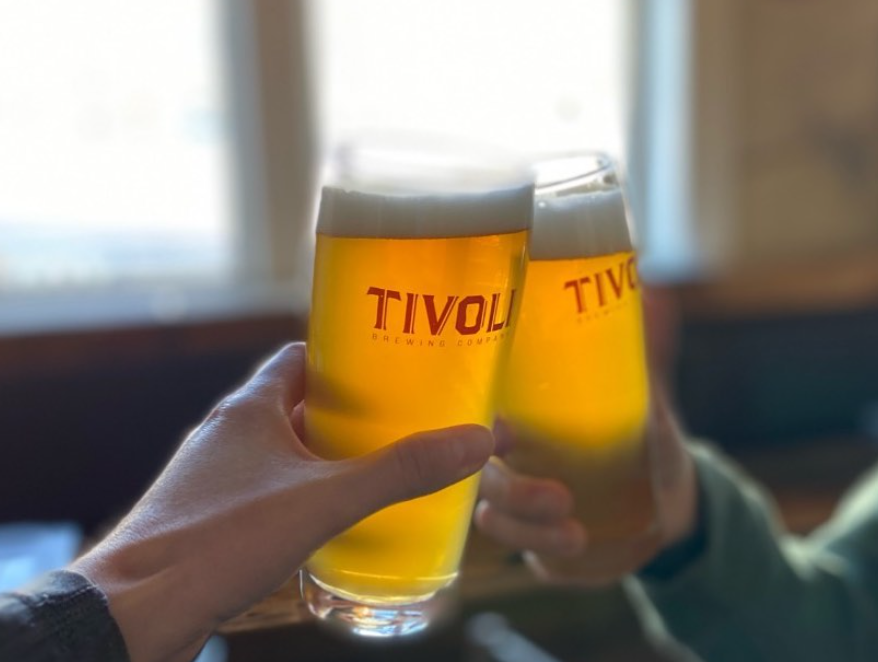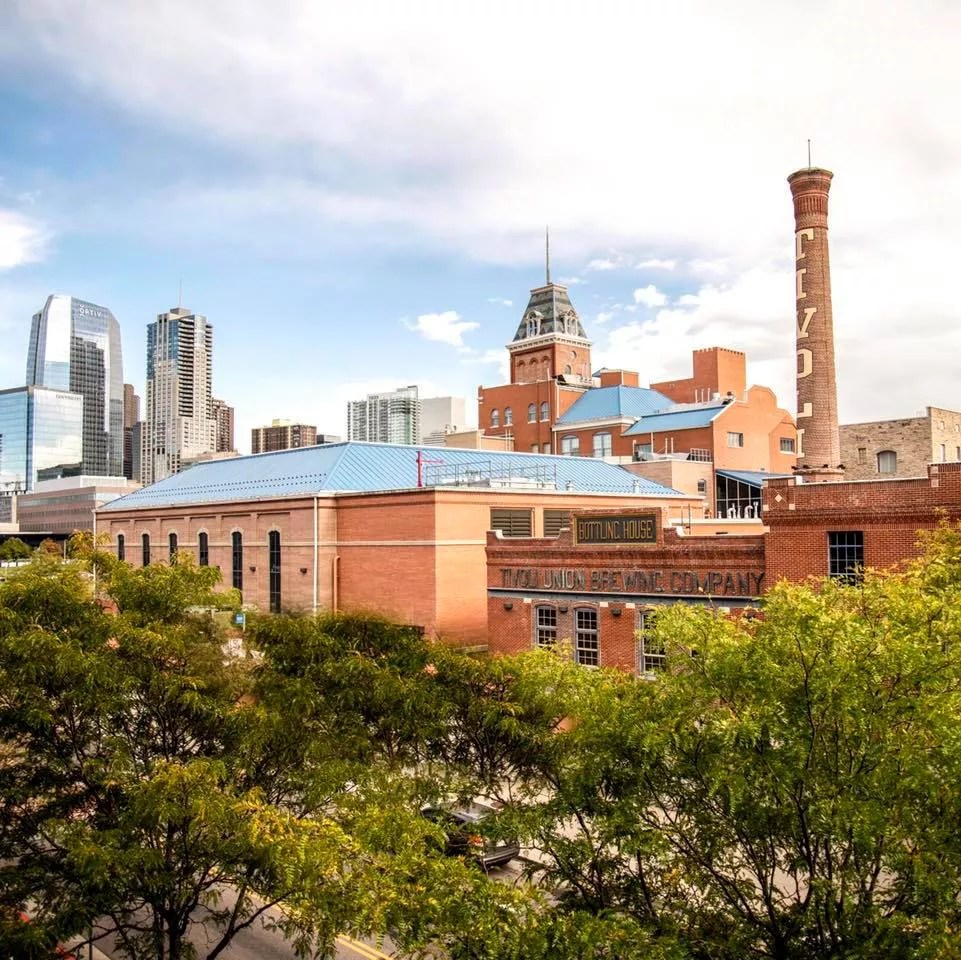
Tivoli Beer/Instagram

Audio By Carbonatix
Most breweries wouldn’t dream of taking on the big macro beer companies like Bud, Miller and Coors – or “BMC,” as they’re often called. But Tivoli CEO Ari Opsahl thinks those brands are antiquated. “They’re fantastic liquids, incredible brands. Their stories are amazing,” Opsahl says. “But I also think there is an opportunity for a new generation to come in and build new brands within the light category. I think consumers are looking for them,” and he’s hoping that Tivoli’s Outlaw Mile Hi is that beer.
He’s essentially staked the future of the company on it, and so far, it’s working. Outlaw now accounts for roughly 85 percent of Tivoli’s production, and that number is growing, Opsahl notes. Success is not a foregone conclusion, though, and Opsahl knows better than most the hard road ahead.
Before he took over as CEO at Tivoli in 2021, Opsahl spent seven years working for Anheuser-Busch InBev, the largest beer company in the world. He spent time in sales and marketing, eventually reaching the level of vice president. Opsahl believes that his experience has bolstered his ability to be successful in the macro beer world with Tivoli.
To make a light beer that is truly competitive with the big brands on a large scale is going to require a lot of time and investment, and maybe a bit of luck, too. “There’s this fallacy that there is a level playing field in the world of beer,” says Opsahl. “Actually, it’s not. It’s completely unlevel. Look at can-buying and AB-InBev. They have a global procurement office in [Belgium] buying futures on aluminum.” Opsahl points out that with everything that goes into beer, from the grain to the hops, the big players enjoy large price advantages.

While Tivoli will no longer produce beer at the Auraria location, it will continue to operate the taproom.
Tivoli Brewing
Tivoli Brewing Company has a history almost as long as that of Anheuser-Busch. In 1859, German immigrant John Good founded a brewery in the new town of Denver. It went through several name changes – Rocky Mountain Brewery, Sigi’s Brewery, the Milwaukee Brewery – before settling on Tivoli in 1900, with a big plant on what today is the Auraria campus. While the building remains, the brewery closed in 1969; a group bought the Tivoli name and recipes in 2012 and brought the brewery back to life, originally working out what had become the Auraria student union.
In the macro beer world, there isn’t room for inefficiencies; everything has to operate like a well-oiled machine, without delays in production or missed opportunities to grow. That is primarily why Tivoli is no longer brewing at the Auraria campus. “Auraria is not built for scale,” notes Opsahl. While he loves the history and the setting of the location, the lack of amenities for a growing production brewery posed a major challenge – one that couldn’t be overcome in negotiations with the landlord. The facility doesn’t have a grain silo, for example, and production breweries utilize silos to buy base malt in bulk, saving as much as 50 percent of the cost in the process.
Tivoli will continue to operate the taproom at Auraria (its lease runs through 2024), but production has moved to the much larger Gold Buckle Beer facility in La Junta, which is more suited to a macro beer producer. That facility was originally a pickle factory; it was purchased in 2014 by Miller International, the company that owns Gold Buckle as well as Tivoli (and is no relation to Miller beer.) Gold Buckle itself produces similar types of beer – easy-drinking lagers that target working-class buyers with a light, clean taste at a lower price point. Outlaw is currently competitively priced at $21.99 locally for a 24-pack of twelve-ounce cans.
To become consistently price-competitive with the big companies while still being able to turn a profit, Tivoli will need to achieve greater buying power. Opsahl sees the magic number for Tivoli’s production at about 250,000 barrels of beer annually to reach that threshold. Tivoli currently produces around 30,000 barrels and hopes to break the 60,000-barrel barrier next year. While the brewery will see some price breaks at that level of production, most of the savings will be negated by an increase in federal excise taxes.

Tivoli is now brewing at the Gold Buckle Beer facility in La Junta.
Gold Buckle Beer Instagram
When working on a plan with Tivoli’s leadership team about two years ago, Opsahl started to feel that there was more opportunity to become a regional brewer, to scale, by exploring the world of light beer. “The craft beer industry is in an uphill battle right now, to say the least,” notes Opsahl, but that doesn’t mean Tivoli is going to stop producing its craft brands, like the popular flagship Helles Lager, or its Bo Girl Pils. “We’re kind of using Outlaw as a Trojan horse for our craft brands,” he says. Those craft beers, while currently just a small part of the portfolio for Tivoli, represent the potential for higher profit margins.
When consumers think about light macro beers, they think of light lagers, and most major beer competitions classify beers like Miller Lite or Bud Lite as American light lagers.
Outlaw is actually made with a Kolsch yeast, which is technically an ale yeast, though it is treated very much like lager yeast; it is fermented at a lower temperature than most other ale yeasts, resulting in a slower but cleaner and smoother product. Outlaw also uses Magnum hops, known for a potent but clean bittering property, and pilsner malt from Rahr Malting.
Opsahl says that Tivoli is in the process of securing a manufacturing license for the Gold Buckle facility, allowing it to move from contract brewing to operating itself. Outlaw is also entering the Florida and Texas markets next year, and Opsahl is confident that the beer will perform strongly there. The target is to reach thirty states by the end of 2024.
The 250,000-barrel production goal that will put Tivoli on an even battleground with the big players also happens to be the maximum capacity for the Gold Buckle facility, so at some point down the road, it could be looking at yet another move.